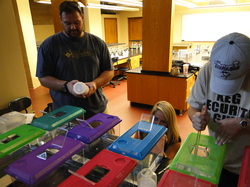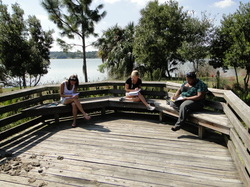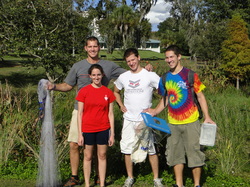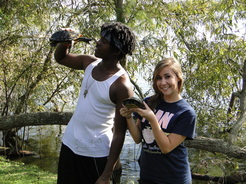Dr. Langford's courses (past and present):
Bio1500: Biological EssentialsThe first required majors course, which provides a rigorous introduction to the principles that lay the foundation for the biological sciences.
Bio2500: Ecology and EvolutionFour hours. Prerequisite: BIO 1600 or permission of the instructor. Theory, patterns, and processes in the biological evolution of organisms and their adaptation to the abiotic and biotic environment.
Bio2800: Marine BiologyA study of the ecology, functional morphology, behavior and group relationships of marine vertebrates, invertebrates, algae, and grasses with several field trips to marine ecosystems.
Bio3316: Tropical EcologyFour hours. This class always travels to a tropical location (Junior Journey) to conduct field biology. In the past, we have travelled to the Bimini Sharklab and Forfar Field Station, both in the Bahamas.
Bio3301: Field EcologyFour hours. Prerequisite: BIO 2500. An introduction to the methods, technology, and equipment used to collect, analyze, and interpret ecological and environmental data. Students will apply the techniques they learn to investigation of environmental problems and ecological issues.
Bio3120: Biology of Amphibians and Reptiles
This course provides a modern survey of the amphibians and reptiles, including life history, physiology, behavior, ecology, evolution, and conservation with a focus on the amphibians and reptiles (especially sea turtles) of Florida. Bio3850: ParasitologyThis course focuses on the identification and understanding of parasitic organisms and their hosts, including most of the major groups of animals with parasitic members. The course focuses on human parasites, tropical medicine, and epidemiology, but includes veterinary diagnostics and the parasites of wildlife.
Bio4461,4462: Research in EcologyStudents will learn basic techniques in ecological research, and design and carry out research in ecology. Research projects can be carried over into a second semester.
|




